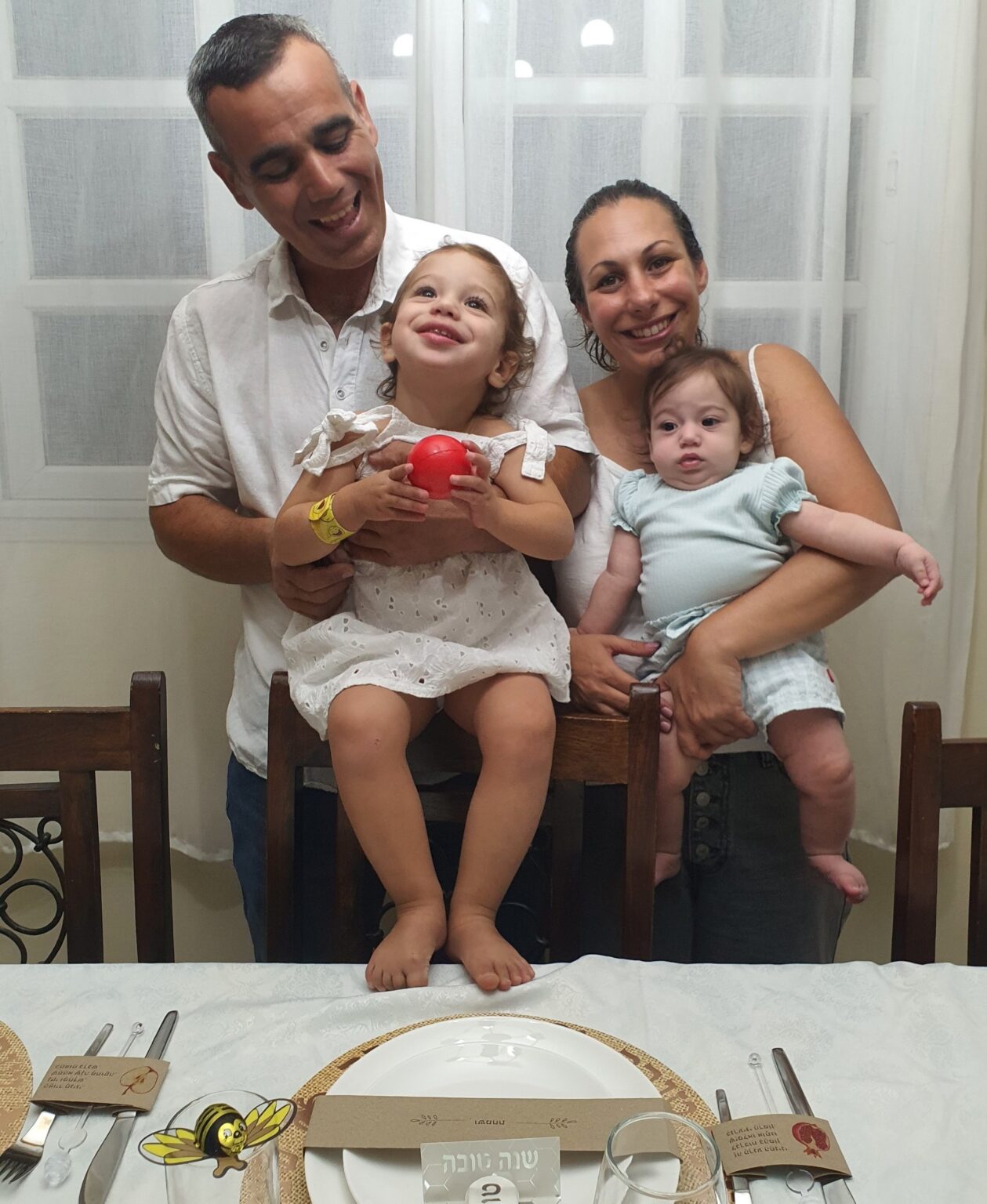Many American progressives often claim to stand for universal human rights. But for the past 20 months, many have remained silent—or worse—when Jews and Israelis have been the victims.
It has been 615 days since my brother-in-law, Omri Miran, was kidnapped by Hamas.
On Oct. 7, 2023, he was taken from his home in Kibbutz Nahal Oz after being held at gunpoint with my sister, Lishay, and their daughters—Roni and Alma. They watched their neighbors slaughtered. They saw their community set ablaze. And then Omri was dragged into Gaza. Lishay and the girls were left behind, terrified and unsure if they would survive until they were rescued.
We still don’t know where Omri is, what condition he’s in, or whether he’s being fed, tortured, and held in isolation. The little we know comes from two psychological warfare videos Hamas released—one in April 2024, the other just weeks ago, 12 days after his 48th birthday.
Omri is one of 53 hostages still in Hamas captivity—people whose names and lives you never speak, never ask about, never make space for.
For nearly 20 months, you’ve ignored them. Too often, you’ve desecrated them—reducing their abduction to a “consequence of the occupation,” tearing their faces off lampposts, or dismissing their suffering as politically inconvenient. Worse, some have justified their captivity, recasting evil terrorism as “resistance.”
This isn’t a critique of everyone who supports progressive causes. It’s directed at the gatekeepers—the ones who shape discourse and decide whose pain is worthy of acknowledgment. The ones who denounce certain forms of extremism but excuse others flourishing in their own ranks.
I live in New York. I studied at your elite universities, marched with you at your Pride parades, worked alongside you. I speak your language—the language of rights and justice, of liberation and solidarity.
But somehow, that clarity ends when it comes to us—Israelis and Jews.
You march for Palestinian rights but say nothing about the 53 civilians still held in underground tunnels, the 250 kidnapped, or the 1,200 murdered on October 7. You twist terms like colonialism and rewrite history to fit your narrative, yet say nothing about generations of Israelis who have endured war and terrorism fueled by Arab rejectionism and radicalism. You speak of generational trauma, but when Jewish families live it in real time—when my nieces cry for the father they may never see again—you look away. And your silence has consequences.
On May 22, two Israeli Embassy staffers were fatally shot outside a Jewish Museum in Washington, D.C. A week later, Molotov cocktails were thrown at a peaceful “Run for Their Lives” rally in Boulder, Colo.—held to raise awareness about the hostages. At both events, the attackers shouted antisemitic slurs and invoked the now-familiar cry, “Free Palestine!”
These are not isolated incidents. They are the product of a culture where violence against Jews is tolerated—so long as the victims are framed as symbols of a government you oppose. A world where hostage-taking is rebranded as “resistance,” and antisemitism is recast as righteous anger.
No, you didn’t throw the Molotov cocktails or pull the trigger. But you helped shape a world where those acts are no longer shocking. Through the slogans you chant, the disinformation you share, the posters you rip down—you’ve blurred the line between activism and hate. Some go even further, treating American Jews as stand-ins for a government 6,000 miles away.
This op-ed is not a demand for allegiance. It’s a plea for coherence—for a moral compass that doesn’t shift based on identity.
If you believe in human rights, believe in them for us too. If you oppose oppression, then condemn what Hamas has done—not only to Israeli families but also to its own people. Hamas has brought nothing but suffering to Palestinians, subjecting them to an authoritarian Islamist rule, child conscription, and endless war.
This is not about politics. It’s about people. About Omri. About the 52 others still trapped in Gaza. About families—many of whom still don’t know if they will ever say goodbye.
You can oppose Israeli policy. You can support Palestinian aspirations. But if you cannot bring yourself to denounce hostage-taking and the deliberate murder of civilians in your own country—or worse, if you justify it—then your movement isn’t about justice. It’s about something else entirely.
And one day, when the slogans fade and the reckoning comes, you may look in the mirror—and, like Dorian Gray in Oscar Wilde’s novel, be horrified by what you see staring back.
Omri is a father. A therapist. A gardener. He is not a symbol or a number. He is a human being who deserves to come home.
Say his name. Say all their names. Acknowledge their suffering. Demand their release
And if you can’t, then be honest enough to admit that your vision of liberation does not include us.
Moshe Emilio Lavi was born in Sderot, Israel. He is a former captain of the Israel Defense Forces (IDF) and now works as a management consultant in New York City.
His brother-in-law Omri Miran is a hostage in Gaza.
The views expressed in this article are the writer’s own.
Read the full article here

